 What does it mean for you, to be a writer? Do you consider yourself in this position?
What does it mean for you, to be a writer? Do you consider yourself in this position?
It’s a tough call – I mean, I put the profession of writer on my tax return, and that’s what I do for a living. But I think a lot of people expect a writer to be something different, some kind of Stephen King character, or a celebrity that publishes millions of books and appears on Charlie Rose and stuff. I’m far from that, because I really avoid the classes and readings and events – I’m not interested in the business of publishing or books, and I find most writers to be far too aggressive and egotistical. Most of my coworkers don’t even know that I write books. My parents don’t even know I write books. Writing in this day and age is considered strange, but I see it as a necessary evil.
What has been different about writing your second book than the writing of the first?
Summer Rain, my first book, was very linear. It was based on reality, and it followed an outline that I carefully managed. There were things that completely didn’t happen, but much of it could have occured during your typical summer on campus in 1992.
Rumored to Exist, on the other hand, is completely random. It’s the literary equivalent of Kentucky Fried Movie, a bunch of pieces put together to form feeling, terror and energy rather than emotion. It involves a lot more research, reading stuff to get ideas for bits and pieces. And a lot more stuff comes to me spontaneously, and ends up on scraps of paper and backs of envelopes before it is developed further. It’s not about character development and fleshing out a huge outline like Summer Rain. It’s a lot more the way I like to write, and it’s closer to my voice. But it’s much harder to do. The two are very different.
Both of your books have been print-on-demand, and you’ve been doing web-based writing for over a decade. Do you use these technologies to avoid conventional publishers, or do they have other advantages?
iUniverse and print-on-demand happened at the perfect time, just as I finished a draft of Summer Rain and really wanted to print a few hundred copies for fans and maybe to sell online. I looked at printing companies that could do 500 or 1000 books for several thousand dollars, and didn’t have any way to put that much into a book. And I was certain publishers weren’t going to even answer my mail if I sent them a thousand-page coming-of-age tale set in Indiana. Then I found iUniverse, and within six months, had this first novel sitting on my shelf and sitting on Amazon and other stores ready for purchase.
PoD is really analogous to the web’s model of letting anyone publish. When I first did zines online, I was able to avoid dealing with jerkoffs at Hit Parader or Metal Edge and write my own reviews for anyone to see. Later, I wrote fiction, and did a literary zine called Air in the Paragraph Line without dealing with any of the pretentious people that usually run small literary journals. Print-on-demand let me take the same style of writing and move it to paper without dealing with the logistical problems of storing a bunch of paper copies, going to the post office every day, cashing rubber checks for $3, and so on.
With Rumored, the decision for iUniverse was a tough one, because I really wanted to find a publisher. But I know a lot of former publishers here in New York that are begging for spare change, and nobody’s doing anything adventurous now that the entire economy is collapsing. And I didn’t want to deal with a bunch of agents or publishers that would look down their nose at a book that advocated sex with sheep and spends page after page talking about the Satanic anti-Christian holocaust or whatever. Also, I just wanted it DONE, and in paper. So it’s out now, and I’m sure it will sell less copies, but it’s out and I didn’t have to deal with anybody to print it.
 Do you do any graphical or layout design besides what’s on the book? if so, which do you think will be more important as a stressed aspect of any new design, during the next two decades: perspective, color contrast, impact fonts or religious icons?
Do you do any graphical or layout design besides what’s on the book? if so, which do you think will be more important as a stressed aspect of any new design, during the next two decades: perspective, color contrast, impact fonts or religious icons?
I do a limited amount of web page work, and I do some layout stuff for my day job, but it’s not my specialty. I’ve also been experimenting with some fake porn stuff lately, putting people’s heads on naked people’s bodies – I think this is one of the most underrated art forms out there.
I think perspective has the most subliminal impact on any layout, at least the ratio of everything in the layout. The golden ratio has always been a strange constant in nature and in classic art, and it’s amazing that you can still see it in most modern movies. I had an old roommate doing a thesis on the films of Stanley Kubrick and the use of the golden number in how he framed his shots and arranged some stuff during editing. I thought it was total bullshit, and then he brought me to The Shining in a big-screen movie theatre, and every fucking shot was perfectly framed that way. I did a lot of reading about film a few years back and I realized that every aspect of film editing has to do with this – make a plane come into a shot one way and it’s beautiful, but the other way is threatening. I think the way people are drawn to a web page, to a subway ad – it’s the biggest aspect of anything.
Color contrast – that’s a fad. In a few years, it will be something else. My mom used to be an interior decorator, and used to go to these big conventions and they would basically say “this will be the next color”. One year, she came home and told us that small appliances and electronics would be coming out in pastel colors, and I thought she was smoking crack. Next Christmas, every store was selling pink jamboxes and baby blue telephones. Much later, we had the iMac and all of the clear plastic, clear color stuff. Who knows what will be next.
It’s weird that you say religious icons, because I don’t see them in ads much, but then think of what icons have replaced religious ones in our culture: Coca-Cola, Microsoft, AOL, Britney Spears, MTV. You see Pepsi billboards more than you’d see large crosses in towns a hundred years ago. The Nike swoosh is probably more recognizable than the crucifix. And there are billboards with just that swoosh. Not a picture of the shoe, not a description of how much it costs or what its value is over other shoes. Just the fucking swoosh, and maybe a slogan that sounds more like a self-help mantra. I’ve never created any layout that has to do with that, but seeing as I spend a lot of time on the subway, I see it constantly.
When you describe the writing of Summer Rain, is this close to the William S Burroughs cutup technique, or that of oral literature? How similar do you suppose this process is to the means by which death metal bands compose technical masterpieces by collecting riffs and shaping them recombinantly into narrative?
It’s funny you should mention that, because I’ve been talking to Ray Miller (creator of Metal Curse zine and the death metal band Adversary) about how he should start writing a book. He worked for years in an indie record store, and every shift there was some strange, weird story. It could be like that book High Fidelity, but much more underground or strange. And in talking to him about how to get started, I mentioned the analogy of a death metal band creating an album. Instead of starting at page one and telling the story, sometimes it’s helpful to write these “riffs” and collect them, and later put them in place, like how you’d write songs. Rumored to Exist happened very much like that. So did Summer Rain, but it’s much less apparent because it’s a linear story. Rumored prospered from this lack of concentration on my part. It also made things much more difficult to edit.
And from what I’ve heard, that’s how Burroughs got Naked Lunch together, as opposed to the Kerouac straight-narrative, typing on rolls of paper approach, which would drive me nuts.
Do you find that being a writer makes you more prone to socialize, or more paranoid?
I wouldn’t say I’m paranoid, but I’m not a social diva, either. I’ve generally kept to myself, partially because I spend a lot of my time chained to the computer, but also because there aren’t many social outlets for writers that aren’t swimming with writers that have severe ego problems. I don’t like classes or workshops because I usually end up getting in fistfights with diva writers who think they are the next Michael Crichton or something. That said, New York is a decent place to be as a writer, especially if you work the corporate office environment. I know a lot of people who are aspiring actors, or long-time musicians, or occasional standup comedians, or wannabe screenwriters, or part-time directors, or something. So there can sometimes be some support from these people, so that’s cool. But most of the time, I socialize and don’t talk about the book, because I don’t want to be like those Amway people, always trying to push their product on everyone.
When you sit down to write, do you have an outline in front of you or in your head? how much of your work is improvisational? how many times do you edit and, what intoxicants are required to begin the editing process?
It depends on the book, of course. My first one, Summer Rain, was very outlined and regimented – I had to plan out with a calendar what would happen and I vaguely followed what really happened to me that year. But Rumored was more like playing with legos, because of the nonlinear format. At first, I simply wrote bits and pieces that gelled into segments. Later, I had a lot of trouble balancing this out – some things were a line long, others were the size of a short story. So I had to do a certain amount of planning on paper to balance things, move things around, and give the whole thing a feeling of continuity.
Most of Rumored was born from ideas I’d get anywhere – while in the shower, while reading a book, a web page, watching a movie. I wrote ideas, phrases, bits of dialog on scraps of paper, notepads, spiral notebooks, and in a slush file in emacs. Bits and pieces got moved around, and improv had a large amount to do with how to place those ideas and actually turn them into readable pieces of text. My best writing was when an idea came to mind and had enough inertia to pull out a very energetic piece without much thought. When I had a good night, it was much more like channeling than actual writing.
Of course, this left a very fucked up and uneven manuscript that required a lot of editing. And edits actually rewrote the entire book several times over. There were seven major versions of the book, with each one comprising of sometimes more than a dozen paper edits. Even with this, I know there are still mistakes in there. But the other problem with a book like this is that it’s hard to say when it’s done. I can’t just say, “the good guy beat the bad guy and got the princess, so I guess it’s done.” It took a lot of work just to put the fucking thing down and concede that it wouldn’t get any better.
As far as substances, the drug for this trip was caffiene, with some ephedrine thrown in for good measure. Anything else would slow me down or change the tone. I still don’t see how Bukowski or Hemingway or whoever could load up on booze and write. And I’m not into any other drugs. I even quit caffeiene during the final editing of the book, and it made the work in the last stretch twice as hard.
 Who are your favorite postmodern writers?
Who are your favorite postmodern writers?
I’ve always thought the phrase “postmodern” was too vague and gimmicky in categorizing writers, kindof like how “open standard” in the computer world doesn’t really describe anything. But I guess Mark Leyner would be at the top of the heap, and Raymond Federman. I’ve read a lot of Burroughs, although I like the story of his life more than I like his actual work. Naked Lunch is a landmark book, but I’d rather read interviews with WSB where he’s rambling on about Mayans and Yage and Control and everything else. His theories are incredible, and I wish I could live a life a percent as interesting as his.
Do you believe that postmodernism – the concept of linear rationality being dead and supplanted with the world of subconscious imagery – in literature has place, or is merely a deviation soon to be forgotten by history?
I think it has more of a place than people realize, now that everyone’s using the web, and that’s the biggest mess of nonlinear shit out there. It’s only a matter of time before people write good nonlinear books of pieces of imagery cataloged by link instead of linear pages, and people will be able to parse it perfectly. I don’t think that the human mind thinks in a straghtforward way, and it’s just a limitation of technology that presents literature in a straightforward way. If they ever start injecting works of art into peoples’ brains like a drug, the linear story will be the one that is forgotten by history.
Some people claim to remember stories and ideas visually, like William Gibson’s concept of cyberspace, but others describe a non- linear structural memory. Is this because events, actions, objects have internal mechanisms that describe their function in a unified external reality, or because of our tendency to associate ideas with other ideas for the purposes of contexting?
The original concept of Rumored to Exist was that each section would be a part of a person’s brain or memory, and at that time, I did a lot of reading and research on human memory to see if this was true or if I was just making it up. And human memory isn’t linear, it is organized chronologically or in neat pieces like an MP3 library or something. It’s easy to see when you look at stroke victims, and how they selectively remember things, but because other organic parts of their brain were destroyed, other parts are gone. So after a stroke, you might not remember how to speak, or butter a piece of bread, or operate a microwave oven. And it’s sometimes possible for these people to re-learn these skills using free memory in other parts of the brain. That makes me think the mind is more like a hard drive with a bunch of loose inodes and a file allocation table, and the importance or relevance of different things determines how well that information is kept. That’s why you can’t remember the songs a band played at a show, but you remember the way the beer tasted.
To answer your question, I think this is a feature and limitation of our organic brain. I think the way we group disparate parts and pieces of our external reality into events and stories and nightmares and memories is how the software works for this hardware.
But it was a particularly unlucky star for the Italian painters of genius in the fifteenth and sixteenth centuries that, in the narrow sphere to which they were arbitrarily referred for the choice of subjects, they had to resort to miserable wretches of every kind. For the New Testament, as regards its historical part, is almost more unfavourable to painting than is the Old, and the subsequent history of martyrs and doctors of the Church is a very unfortunate subject. Yet we have to distinguish very carefully between those pictures whose subject is the historical or mythological one of Judaism and Christianity, and those in which the real, i.e., the ethical, spirit of Christianity is revealed for perception by the presentation of persons full of this spirit. These presentations are in fact the highest and most admirable achievements of the art of painting, and only the greatest masters of this art succeeded in producing them, in particular Raphael and Correggio, the latter especially in his earlier pictures. Paintings of this kind are really not to be numbered among the historical, for often they do not depict any event or action, but are mere groups of saints with the Saviour himself, often still as a child with his mother, angels, and so on. In their countenances, especially in their eyes, we see the expression, the reflection, of the most perfect knowledge, that knowledge namely which is not directed to particular things, but which has fully grasped the Ideas, and hence the whole inner nature of the world and of life. This knowledge in them, reacting on the will, does not, like that other knowledge, furnish motives for the will, but on the contrary has become a quieter of all willing. From this has resulted perfect resignation, which is the innermost spirit of Christianity as of Indian wisdom, the giving up of all willing, turning back, abolition of the will and with it of the whole inner being of this world, and hence salvation. Therefore, those eternally praiseworthy masters of art expressed the highest wisdom perceptibly in their works. Here is the summit of all art that has followed the will in its adequate objectivity, namely in the Ideas, through all the grades, from the lowest where it is affected, and its nature is unfolded, by causes, then where it is similarly affected by stimuli, and finally by motives. And now art ends by presenting the free self-abolition of the will through the one great quieter that dawns on it from the most perfect keowledge of its own nature.
– Arthur Schopenhauer, The World as Will and Representation
If there is an afterlife, what do you think it would be?
I don’t think there is an afterlife, so I try not to speculate about it. I think the afterlife is the carrot on a stick that leads the religious to do really stupid things and waste their lives. People should stop thinking they are one of the chosen few that will go on to a better place and actually do something with their lives that will make this world a better place.
Are you following the growing penetration of drugs into American society? From where do you think this originates? What is the significance of drugs – altered perception – in the time after perception was considered inherently faulty?
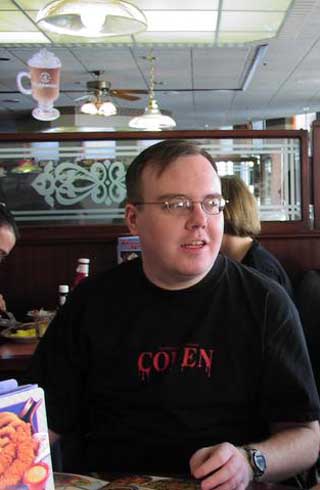 Let me hijack this question and answer it in a different order. First, drugs are omnipresent in American society because any highly industrialized nation doesn’t utilize its population efficiently. Back in the old days, people spent all of their cycles hunting game, planting gardens, making quilts, raising babies, building log cabins, and tending fires because they had to, to survive. There wasn’t much leisure time, and it was used by religion. There was little free will – you either hauled water from the well a mile away, or you died. Humanity doesn’t always have things easy now, but it’s not hard to get an easy job at McDonalds or a factory, pay your rent, never break a sweat, and have 128 of your 168 hours a week free to your own devices.
Let me hijack this question and answer it in a different order. First, drugs are omnipresent in American society because any highly industrialized nation doesn’t utilize its population efficiently. Back in the old days, people spent all of their cycles hunting game, planting gardens, making quilts, raising babies, building log cabins, and tending fires because they had to, to survive. There wasn’t much leisure time, and it was used by religion. There was little free will – you either hauled water from the well a mile away, or you died. Humanity doesn’t always have things easy now, but it’s not hard to get an easy job at McDonalds or a factory, pay your rent, never break a sweat, and have 128 of your 168 hours a week free to your own devices.
Now some people use that time in a cool way. They go to school, they create cool web pages, they climb mountains, they work on their car. But many people don’t know what to do with their time. They feel a need to belong, this tribal instinct. They watch sports, they drink beer, they become xenophobic, they develop ulcers, they try to keep up with the Jonses. Most of the ailments of the late 20th century have to do with people who have too much free time on their hands, from corporate corruption to gangs to religion. This isn’t a new theory; even though he is legally considered criminally insane, this is the logic the Unabomber was laying down.
Okay, so you have this straight man’s culture, where you’re expected to buy into the white picket fence thing, and have kids, and buy a sports utility vehicle and play golf. And more and more people think this is a crock of shit. And they get high. They find out that controlled substances make them forget about this void in life. And it might even make then enter a new subculture with other stoners, where these rules don’t exist.
I’m not a drug user, except for the occasional beer with friends, so I don’t know if I really buy either side of it. I’m not the kind of person to hang onto either extreme and consider it right, so I’d rather sit in the middle, or not even participate. I write about drugs a lot, though, because this culture interests me. It’s something that hasn’t been touched in a creative way, something to be explored.
I thought Naked Lunch was pretty creative, but the reams of drug fiction following were mostly social irresponsibility pornography. If you were going to write with drugs as your topic, what might you create?
I think the best way to write about drugs would be to have them an integral part of the story, but not be in the forefront. Drugs are just a chemical; any real story is about humanity, and any compelling story about drugs would have to describe the human condition in a compelling way. Drugs are usually used in a plotline as an evil, or an excuse. Like, a guy robs a bank because he’s on drugs. Occasionally, someone writes about drugs as a catalyst, a conduit to action, like in most crime films where mobsters have a shitload of cocaine and that temporarly reverses things so they are on the heavy side of the law, and there’s no way the cops could win. Think about movies like The French Connection, where these guys with a fuckload of heroin were above the law. That’s about as far as most books and movies really go with it.
I think Hunter S. Thompson did some great work beyond Burroughs in this area, but I also think if he wasn’t taking a drug store full of junk when he was in Las Vegas, he would have written a book just as entertaining as Fear and Loathing. But it’s a book about excesses, and the writing and the search for humanity is what makes it for me.
Do you see writing in this time period as democratic, or elitist?
It’s probably more elitist. Most writing in this country is actually the production of “media” by “media figures” who are pop stars known for their name instead of their craft. It’s nice that technologies like Print on Demand and the Internet are making it easier for anyone with skill to create art, but I don’t see much of a community surrounding this. I’m hoping we’re at a crossroads where the truly intelligent will realize that writing for fame and fortune is futile, and it’s better to write for yourself and put it out there, even if only a dozen people see it on the web or in a zine or whatever. And then those intelligent will congeal and find each others’ work and form an unstoppable movement of real work, rather than the imitation writing that marketers present to us in book stores.
This seems to be the same problem faced by aging death metal bands however. At some point, having a day job to write books or death metal music reviews all night becomes tedious, and one wishes to be supported by the primary labor of life, writing. How does this fit into ideological niche marketing as you describe?
It doesn’t fit, and that’s the catch. You can’t support yourself selling twelve copies of your work a year. And there are other forms of support, like grants or communes, or scholarships, or universities, but they all dilute you into something else just as much as a day job. Like, I went to an art museum once, and there was an exhibit that was a bunch of hay and horse shit on a floor, and a bunch of Macintosh computers showing bitmapped animated pictures of Planet of the Apes. Was that art? I’m not sure. But the grant application that paid for all of that hay and shit was probably incredible art. And if you want to do that all day, and you are good at it, that’s great. But it probably means you aren’t producing art like you originally wanted.
When did you first decide to be a writer? If a role model, what qualified that person as insurmountable by their world?
I’ve always been able to write to a certain extent, but I got more involved with computers as a kid, and during school, so I always thought that was my destiny. I thought I had a book in me, but I was more concerned with learning how to hack and program. I eventually hit a wall in my formal CS training, around the time I also got dumped by this girl I was dating. I was going through a serious “what should I do with my life” phase, and didn’t entirely know what I wanted to do. I’d been working on a few Death Metal zines and I enjoyed the journalism and writing, but didn’t know if I could become a “serious” writer.
So the writers that got me started were guys who were not pretentious, and made it look easy. I liked the spoken word of Henry Rollins, and it got me into writing in a journal every day, and observing things around me. Charles Bukowski made me look at autobiographical fiction and consider it easy. So did Henry Miller, but Bukowski’s work had a certain sense of truth to it, and showed me that it wasn’t what you were writing about as much as how you wrote it. That got me started on short stories, and eventually Summer Rain.
Should writers stay celibate?
Not really, or at least not by choice. Granted, it’s hard to write on a daily basis and maintain any kind of relationship. I can’t write as well when I take off Friday and Saturday to spend time with a girlfriend or cruise around looking for one. Those are the days I write most, so my stretches of not getting any also tend to be when my writing volume increases. But interacting with people is – well, it’s not essential to writing, but it helps.
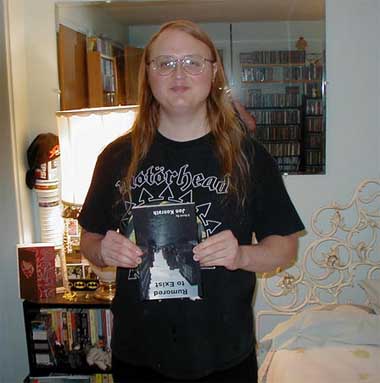 This seems to me why ancient religions and cultures recommended a studied celibacy for men. It seems that one workaround to this would be a more anti-social culture, where fewer people attempt the emotional interdependency that works well to glue society together like plywood, in which a relationship offered briefer, more passionate encounters with a significant other living in a close but separate location.
This seems to me why ancient religions and cultures recommended a studied celibacy for men. It seems that one workaround to this would be a more anti-social culture, where fewer people attempt the emotional interdependency that works well to glue society together like plywood, in which a relationship offered briefer, more passionate encounters with a significant other living in a close but separate location.
Do you see there being any humor in that being hard makes it hard to write?
There are a lot of strange catch-22s in our society like this. For example, most people that teach acting are not good actors, because if they were, they’d be getting parts, not teaching. If you’re teaching any practical field, like business, you can’t be working in that field, unless you are doing a half-ass, part-time consulting job or whatever. Very few people can pull it off, but many don’t, so it makes you wonder how the hell people figure this stuff out.
Writing is the same because writing involves translation of the human element into word. And to be a specialist in the human experience, you’re going to date people and be married, and go to parties, and have a family, and travel all over, and do all of this stuff. But if you did all of this, you wouldn’t be able to write! And I always wonder if my writing would be better or worse if I was hidden away at my ranch in Colorado all year around, where the nearest living person is ten miles away. I also wonder what would happen if I simply went full-tilt wife-hunting and gave up everything to get married and settle down. I wonder if I did that if I would ever write again.
On the other hand, it’s no coincidence that when I’m not in a relationship and I want to be in one, I tend to write more vividly about the situation. Summer Rain was started after a horrible breakup back in college, one that probably wasn’t that horrible at all, but I just couldn’t kick it. That kind of pain gives you motivation to do more, so I can ultimately appreciate the cruel irony of the whole thing.
How do you feel about Christian presence in American politics?
It’s sickening. There’s supposed to be a freedom of religion, and a freedom FROM religion, but look at any piece of American money and tell me that this is nothing except a joke. Christians funnel serious money into American politics, and this won’t change. I wish someone would get in the primaries to have some visibility, and then just get up during a speech and say “If you believe in God, go FUCK yourself.” Until then, we have politicians pandering to these idiots. It’s scary stuff
Do you think psychology as a science is unduly influenced by Judeo-Christian values?
It depends on the brand of psychology. When a lot of people go to a shrink after they get dumped or someone dies or whatever, they usually get this fast-track band-aid treatment that involves spilling out your problems and reassuring you that it will be better, but not actually offering any “reprogramming” or heavy understanding of what possible psycho-somatic issues could be causing your problems. That dovetails nicely with the christian belief that if you have problems, you just pray to Jesus and it will all be better. Both are simply a distraction, and that works for a lot of people, but I’m the kind of guy who wants to know what the hell is really going on. I mean, as a kid, every toy I was given was taken apart as soon as I learned where to dig up a phillips screwdriver. So when I was in high school, college, and I wanted to go to a shrink and really pull apart my head and find what was defective and either comment it out or replace it with a new subroutine, I was always running into these shake-and-bake therapists that just wanted me to tell them what was wrong in sixteen one-hour sessions, maybe give me some pills, and it was better. And it wasn’t!
There’s a smaller, but more focused area of psychology that focuses on finding the basis of problems, realizing that your actions and reactions shape the way you see the world and eventually how well you work with it. This is called NLP, and it’s more analogous to debugging a computer program than praying to Jesus, which is why it’s interested me. It’s also more expensive, harder to find, and takes a much longer time to work through, which is why I’m currently not working on it.
What do you think in the same context as Christian political presence about Muslims? About Jews?
There’s less of a Jewish presence in politics, although you see it here in New York. If anything, it’s refreshing to go from Indiana, which is 107% fundamentalist Christian, to New York City, where there are enough Jews that a fundie probably couldn’t run for office without some flak. I don’t even know much about the Muslim influence, and I’m not up on the Middle East, so I’ll leave it at that.
According to the doctrines of Buddhism, the world came into being as the result of some inexplicable disturbance in the heavenly calm of Nirvana, that blessed state obtained by expiation, which had endured so long a time – the change taking place by a kind of fatality. This explanation must be understood as having at bottom some moral bearing; although it is illustrated by an exactly parallel theory in the domain of physical science, which places the origin of the sun in a primitive streak of mist, formed one knows not how. Subsequently, by a series of moral errors, the world became gradually worse and worse – true of the physical orders as well – until it assumed the dismal aspect it wears today. Excellent! The Greeks looked upon the world and the gods as the work of an inscrutable necessity. A passable explanation: we may be content with it until we can get a better. Again, Ormuzd and Ahriman are rival powers, continually at war. This is not bad. But that a God like Jehovah should have created this world of misery and woe, out of sheer caprice, and because he enjoyed doing it, and should then have clapped his hands in praise of his own work, and declared everything to be very good – this will not do at all! In its explanation of the origin of the world, Judaism is inferior to any other form of religious doctrine professed by a civilized nation; and it is quite in keeping with this that it is the only one which presents no trace whatever of any belief in the immortality of the soul.
– Arthur Schopenhauer, On the Sufferings of the World
It seems to me the only difference between fundamentalist Christians and Jews is that Judaism is a materialistic religion with a racial xenophobia, while Christianity is a pseudo-idealist religion with a xenophobia of abstract orthodoxy. In many ways, that last phrase could describe what happened to European intellectualism, with a few bright exceptions, after Christianity arrived. What are your thoughts on these provocations?
I don’t know. To me, I see the main difference is that Christianity has sought to grow by being a very inclusionary religon. That means if you aren’t Christian, you can always be saved and sign on the dotted line and give us money and all will be well. That’s why if you sat in a bus station in Indianapolis on the average Tuesday, someone is going to try to convert you to Christianity about every twenty minutes. And that’s why Christianity is such a basic, dumbed- down religion, with very little orthodoxy. There aren’t a lot of rules to learn or classes to take (unless you’re Catholic) and you can even get an illustrated kiddie bible to read if the King James is too tough for you. Everyone’s invited, and that’s why their numbers grow.
On the other hand, I see Judaism as a very exclusionary religion. Jewish singles are taught to date only partners who are also Jewish. It’s very hard to convert to Judaism. It’s all protected by a very complicated and orthodox system of language, rules, calendar, holiday, diet, and everything else. But that means it’s kept pure.
I think both methods are inherently wrong, though. Any religion stresses that its members are the chosen one, and that other people are pieces of shit. Otherwise, religion would be universal, and individual churches wouldn’t have a way to make money anymore.
Which would you kick out of bed more quickly, Janet Reno or Keanu Reeves?
I think if you had an amateur porn of yourself fucking Janet Reno, it would be pretty much the ultimate party conversation item. And you know I’d go for the ass, as a little Waco retribution.
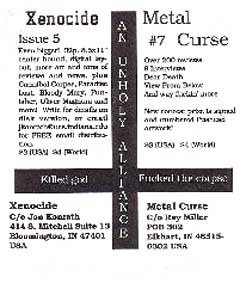 Speaking of Waco, what is the function of government?
Speaking of Waco, what is the function of government?
Good question. I’m far more socialist than liberitarian in that I think the government should provide the functions that a free market economy can’t or won’t provide. In the old model, that’s stuff like roads and healthcare, retirement and men on the moon. There’s also protection and enforcement, from jails to armies. You could argue that any of these things could be done better by private companies, but corporations might not want to do them if there’s no bottom line for them. If a company is paid a billion dollars to build a one billion dollar university, they don’t have any motivation to do it, unless the company is a Christian-run shell corporation that wants to ram religion down the students’ throats, or unless Microsoft wants to build the school and brainwash the kids into using their crap. That’s why in theory a government would get involved – to make sure the alterior motives are decided by the people instead of some marketers.
In my perfect world, peoples’ greed and stupidity wouldn’t come in the way of advancement of society, and government projects like space exploration, computing, scientific research, and healthcare would actually be progressing instead of just being a sick joke. The problem is that people are too greedy, and want to know what’s in it for them. We haven’t found the cure to cancer because the top research scientists are figuring out how to make Sports Utility Vehicles even bigger, because that’s where the money is.
Does this imply that all governmental systems share common functions of both socialist and capitalist behavior? Would it be possible play with words and call socialism “social behavior” governmental theory, and call capitalism simply “competitive behavior” theory? One is implicit centralization; the other abstract. In this view, it might be possible that capitalism is closer to the anti-democratic social ideals I have interpreted from some of your statements above. If competitive rather than capitalism were seen as an American value, how do you think our social outlook might change? Would there be a blurring between the “public fiction” and “private truth” of various economic, social, governmental enterprises?
Socialist socieites also work for a collective goal by the nature of social behavior, but libertarian societies expand social behavior to include as a basic value an indifference to collectivism. Is this true in your view?
It’s true, and I think it’s an inherent flaw of most libertarian systems. For one, I think collectivism is a basic human instinct – one that can be unlearned and avoided – but it’s normal, and something the sheep out there understand. Also, I don’t think everyone can be the center of their universe; I mean, I can’t cook well, I can’t run a nuclear reactor, I don’t want to be the one to clean my septic tank, and I have to rely on doctors, lawyers, grocers, farmers, and many others to survive. A system of collectivism is supposed to provide a method to have those people help each other, while benefitting the most from it. I’m not saying our current system works, but only so many people can vanish from society and hide out in Idaho with their guns and dogs before things fall apart.
Do you believe in conspiracies?
Hell yeah. But I find the myth of conspiracies far more interesting than the conspiracies themselves. I’m writing about them a lot in Rumored, in a very playful and mocking sort of way. I don’t necessarily believe in aliens or whatever, but the Area 51 shit is great. Every society has its own myths and mytholgies, and centuries from now, people are going to be studying the X-Files like we now study Thor and Zeus.
I do seriously believe in a lot of government conspiracy. I seriously think the CIA has its hands in many evil plans, and I know billions of tax dollars go toward creating craft like Aurora, the next-generation hypersonic spy plane. I think a lot of the UFO sightings out there are probably Lockheed test craft operating at night. I know if I would’ve seen a stealth fighter in 1977, I would’ve thought the Martians were coming, too.
Jon Konrath on Death Metal
I know you’ve been a big metal and death metal listener for years. What are you hearing these days?
I actually listen to more stuff in the “prog-metal” genre these days, like Dream Theater, Fates Warning, Queensryche, Joe Satriani, etc. When I put on an “old” CD, it’s more likely going to be an old-old band like Saxon, Judas Priest, Mercyful Fate, SOD, or Anthrax. When I do have some 90s-era Death going, it’s usually Dismember, Macabre, Carcass, or Entombed.
Pick five of the most important metal bands in history and give a brief rundown on each one and why it necessarily fits into the history of metal music.
 Metallica – Kill Em All: Although the band later became butt-pirates, this album was practically an anthem to millions of metalheads, and acted like a gateway drug for virtually everyone that went out and started a band or got involved with heavier metal.
Metallica – Kill Em All: Although the band later became butt-pirates, this album was practically an anthem to millions of metalheads, and acted like a gateway drug for virtually everyone that went out and started a band or got involved with heavier metal.

Motorhead – No Remorse: With their wide appeal and universal mythology, Motorhead became almost a meta-band that everyone respected as the loudest, rawest, and coolest. It’s hard to pick just one of their albums, so I chose their ubiquitous double-album compilation, filled with a little bit of everything from their early career.
 Queensryche – Operation : Mindcrime: This obscure group of Seattle prog-rockers put their mark on the world with what’s possibly the best concept album ever.
Queensryche – Operation : Mindcrime: This obscure group of Seattle prog-rockers put their mark on the world with what’s possibly the best concept album ever.
 Entombed – Left Hand Path: This immaculate work filled with unprecedented heaviness but yet an incredible depth and complexity was the high water mark for the early 1990s Swedish Death Metal genre, and in my opinion, was never topped.
Entombed – Left Hand Path: This immaculate work filled with unprecedented heaviness but yet an incredible depth and complexity was the high water mark for the early 1990s Swedish Death Metal genre, and in my opinion, was never topped.
 Slayer – Reign in Blood: Although their earlier work was just as impressive, this album defined how fast metal would be played for years, and also got Slayer kicked off of Sony.
Slayer – Reign in Blood: Although their earlier work was just as impressive, this album defined how fast metal would be played for years, and also got Slayer kicked off of Sony.
Do you consume any mainstream media?
I meet a lot of people in New York who either think they are bohemian or think they are upper-class and say “Oh, I don’t have a TV” or “I don’t watch movies” or whatever. In general, I find that these people are more fake and uninteresting than the people I know who spend their Saturday on the couch with a beer watching NASCAR. I’ve found that a lot of people that purposely don’t watch TV are still living a fantasyland existance, even without the sitcoms and John Hughes films. They’re still told what to do, and they still obey. It’s not a coincidence they all go to the Hamptons or all pierce their eyebrow or all dye their hair the same way. It doesn’t make them any better than me.
I admit, I do watch TV and I do go to movies and I buy DVDs and play video games. I don’t have cable TV, and I have pretty much given up on newspapers and magazines, although I might flip through whatever’s in the doctor’s waiting room. I enjoy it, but I don’t let it run my life. I think there’s a difference between watching TV and believing in it. If you believe in TV, the ads will lower your self esteem, and make you think you’re a loser because you can’t own a new Oldsmobile or land a chick like one in a Revlon ad or beer commercial. And when your esteem is low, you’re hit with the food ads – 50 grams of cheese fat stuffed in a pizza crust, a bunch of sugar and desserts, and high-fat snack chips that will make everyone happy. It’s no wonder America is obese these days. But I don’t think you need to buy into this to enjoy TV, and I think there are movies that are good entertainment, and just that. It’s just important to remember not to compromise your own life because what you see on TV is neat.
How controlled do you believe the US media to be?
Everyone should read Ben Bagdikian or the Fairness and Accuracy in Reporting (FAIR) stuff, or at least listen to Jello Biafra rant about it. Pretty much everything we read or hear is controlled by a couple of huge corporations. And many smaller outlets for news and information become available, like the internet, but as the big companies get bigger, it seems like less and less people get involved with underground sources. And most people don’t believe stuff on the internet, because it’s diluted by so much shit. I mean, there are some great web sites out there with conspiracy theories, investigative reporting, and stuff like Slashdot, tech news, but there’s so much spam and make.money.fast and urban legends, that it’s hard to believe anything you read anymore. But to answer the question, yes the US media is controlled. And being controlled by big money is worse than being controlled by the government, like it was in old Communist countries. Because you can overthrow a government or vote out a leader, but you have no recourse against GE or Newscorp. You could stop buying their stuff or watching their shows, but that won’t hurt them much – many more sheep will continue to keep them in business.
But here steps in Satan, the eternal rebel, the first free-thinker and emancipator of worlds. He makes man ashamed of his bestial ignorance and obedience; he emancipates him, stamps upon his brow the seal of liberty and humanity, in urging him to disobey and eat of the fruit of knowledge.
– Mikhail A. Bakunin
It seems to me that evolution is a nihilistic thing, meaning it has no morals or concerns for outcomes. Thus when a society is built that values competitiveness at the expense of social logic, and you get the most fascist possible outcomes disguised as the most empowering, convenient, financially beneficial to the individual. Is this a virus humanity will shake? Is there any way out of the big money media control mess?
I think the real question to ask is, “will this virus kill itself?” Enron and WorldCom both died; this week I heard QWEST said they “accidentally” underreported a bajillion dollars of profits, and Ziff- Davis might file Chapter 11 this week. It’s not good news to our economy that these companies are falling, but it’s a demonstration that even the biggest corporations will eventually fail.
 Do you think civilization often hides ugly truths behind social behavior?
Do you think civilization often hides ugly truths behind social behavior?
I’m not sure what you’re getting at – does civilization hide truths with behavior? I think so, but it also has the ability to modify society so that the lies become the truth. That’s part of religion – a while ago, half of the kids born wouldn’t live to see their first birthday. So the churches told people to fuck like bunnies, so they’d have more customers. Now, almost all kids survive, so the world is overcrowded. And we certainly look away from problems and are drawn to others, but that’s more of a problem with capitalism. Everybody talks about school vouchers and keeping porn off the Internet this election, but nobody really gives a fuck about their kids. They never talk to them and treat them like animals. It’s all very silly.
My question might be phrased thus: does civilization have a public justification for a hidden agenda, although not necessarily an articulated and conspiratorial one, which disguises some “private” and/or unpleasant truths?
Just a stab in the dark on this: the human is the only animal that has an inherent double-standard to its nature. I mean, dogs shit on the ground, they fuck each other whenever the need arises, they dig through garbage, and they don’t think twice. But humans are more sophisticated, so there’s this whole obvious-but-secret life to everyone. Everyone has sex (well, I haven’t lately, but that’s another topic) but there is a strong taboo about sex. The same with bodily functions and death and sin and a bunch of other things. Now, I’m not saying we should all run around naked and shit in the streets. But what I am saying is maybe the human mind has this unconscious desire to have these double standards, these things that keep everything running that nobody talks about. Because if you live in an ultra-rich environment, you don’t clean your toilets. You don’t even talk about them; you pay someone else to do it. That sets up this strange double-standard, and that breeds similar things in business and politics, in the guise that it makes us “more sophisticated.”
What do you think makes us greedy, evolutionary mechanism out of control or social conditioning? Or is it possible that the former would naturally check itself eventually, but the later “justifies” it somehow to our symbolic and rational mind?
There’s a lot of social conditioning in our world that we don’t even see. There may be a primal base of darwinism, but the virus of advertizing and marketing tells us we are not complete unless we own a car with leather seats and 7-speaker CD sound system, and it puts off a huge spiral of related stuff. I also think when you don’t get the big things, you overindulge in the small. So when you see that TV commercial of a happy family and you are alone, and then the next commercial comes on and it’s for the new Pizza Hut Pizza with ten pounds of heart-clogging cheese per slice, you pick up the phone and order the pizza and eat the whole fucking thing. There’s this combination of greed and a desire for more mixed with a despiration to fill your life with something, and it’s injected into you pretty much from birth.
It is one of my theories that Christianity isolates the individual by forcing the individual into moral self-comparison with the holy deity, “God.” This causes people to think strictly in terms of their own prospects, and to lose sense of social hierarchy and collective goals. Where do you see this as converging with your own beliefs?
I would agree, although I don’t know if I would call it self- comparison as much as fear of failure. God is like a parent figure, more than a parent because he’s all-knowing, and people don’t want to disappoint their parent, especially if they will get an ass-beating over it. The strange thing is, in a theoretical sense, that would mean people would do unto others, create communities, and help the needy. But I think when you have the Christianity mixed with the unchecked greed, you get this horrible mutation of Christianity that most people in the USA preach, the kind where they think everyone is going to hell but them, but they are also really shitty to others.
Sometimes it seems as if humanity has justified this expansion using warmed-over Renaissance feeling coupled with a Christian ethos of dominating nature (which is “evil”). Do you think there’s any truth to this?
Oh, sure. Corporate branding is a billion-dollar industry, and they grab onto any emotion then can find. The Christian thing is a popular one, but throw in the “it’s for the children” and “it will make people like you”, and you’ve got a good start.
Most American kids feel neglected in the areas that are most intangible, such as time spent, value in the family unit, and that ephemeral “love,” for the third or fourth generation now. Is this a product of industrial society? Did people once treat their kids with more care, and have a collective interest in childrearing as near the top of their hierarchy of demands from a civilization?
It’s tough to say, especially now that single-parent families have been a regular way of life for over 30 years now. I think our industrial society makes it harder for parents to spend time with their children, but I also think people want immediate results, so they aren’t willing to invest time in childrearing. I mean, everyone *thinks* they do, but so many parents rush their kids into Ritalin or other drugs, and they also think they can buy parenting. I grew up in a somewhat affluent suburb where good parenting meant buying your kids the right clothes and buying them a car in high school. It’s much more than a material thing, and not many people realize that. But, I do know some people that are very good with their kids and they still work long hours at shitty jobs but are able to make it work, so not all hope is lost.
Do supermodels shit?
If they do eat at all, I’m certain they just puke it back up, but maybe some of them are addicted to laxatives. The whole thing scares me – I work in Manhattan and I’m amazed at the overabundance of phenomenally skinny women. I mean, everyone I see is six feet tall and 110 pounds, and I know that going to the gym for 5 hours a day doesn’t do that. Either they are coke fiends, or completely anorexic, or both. I’m not too into that, so it freaks me out more than anything else.
Why does death metal seem politically relevant to the end of the 20th century, to you?
Okay, so you’ve got mainstream music, however you define that. And if you’re not a sheep, and you feel a need to be different, you follow another path. In the past, that might have been punk rock, or hardcore rap, or metal, or electronic music. Well, in the interest of marketing, all of these things have been crossbred and watered down and turned into viable commercial product. So depending on what part of the country you live in, mainstream music is now either “alternative” punk music, or “R&B” rap music, or “Electronica” disco- type dance music.

So the true underground is Death Metal. And every effort to market this has failed, because if you remove the gore and the raw power and the Satanism, you’re left with something remarkably stupid that won’t market to the average record-buying sheep, and won’t have enough balls to interest metalheads. Because Sony and BMG can’t sell it or get MTV to play it, they ignore it, and the essential culture of Death Metal survives. It survives because of tape traders (and now MP3 traders) and small distros selling 20 copies of a CD and zines and fans. It means that only selling 1000 copies of an album is considered wildly successful, but it also means that album is going to be evil and aggressive and memorable and pure energy. It means that bands get to dictate what goes on an album, and gets to write songs that are sick or intelligent or protestful or Satanic or whatever. In a sense, it is a far more pure element of democracy, because it isn’t subverted by money. And it’s a form of socialism, at least in the sense that the community keeps itself afloat. You can’t just go to the average Musicland and buy good Death Metal; it’s your job to seek out this stuff by getting on the web or reading zines or talking to others.
But aside from my rambling, the importance of this politically is that the Death Metal community isn’t supported by a government, and it isn’t run by a corporation. And it doesn’t have a massively widespread impact on society, but it’s an interesting pocket of culture that sustains itself. And those things interest me, because if I could find them outside of music – if I could find a community similar to this that would feed me or clothe me or shelter me in exchange for the work I put in, it would be an interesting political experiment.
If you could say one thing to Jesus Christ, what would that be?
I’d probably tell him I was sorry for what his followers did with his message. I don’t believe in God – I’m an Atheist – but I do believe that a man named Jesus Christ walked the earth 2000 years ago, and I believe his followers wrote a book and started a church. I’m guessing the water-to-wine, rose-from-the-dead-on-the-third-day stuff is probably metaphorical, but I do think he was a charismatic man who had some ideas and told them to many people. And in the most basic of senses, Christianity has some good tenets – don’t fuck with people, don’t lie, be honest, do unto others, and so on. I’m probably far more Christian in that sense than most so-called religious people out there. But unfortunately, all of this was distorted over time, and turned into a profitable business, and a powerful tool of government. And I’m sure that if big J walked the Earth today, he’d be pretty pissed at how his vision was warped into what it is today. I’d also ask him his opinion of The Last Temptation of Christ, since I think it’s a pretty cool film.
When Christianity came into being, the craving for suicide was immense—and Christianity turned it into a lever of its power. It allowed only two kinds of suicide, dressed them up with the highest dignity and the highest hopes, and forbade all others in a terrifying manner. Only martyrdom and the ascetic’s slow destruction of his body were permitted.
What is now decisive against Christianity is our taste, no longer our reasons.
– F.W. Nietzsche, The Gay Science
I’m certain of the possibility of UFOs, and the probability of their existence, but I fear the “UFO community” because of its continual anonymity, broad claims and paucity of consistent evidence except for the generalized existence of flying metallic objects on planet earth. To me, it seems that any government is going to hide most of its budget to work on secret evil shit to do to other people, in case one’s role suddenly becomes being the recipient of the “unto you.” What sort of stuff do you think’s brewing now? Do you give any credence to conspiracy theories about AIDS or the West Nile virus, or do you think these are simply a consequence of commercial exploitation of deep forest areas (thus bringing previously undiscovered satanic microbes to the public eye)?
I predict that the threats will all be real things, but the reactions by the government is fucked up. Take the West Nile virus here in New York City. It’s a real virus, mosquitos are a real problem, but most of the people that would die from it are old and half-dead anyway. So the best reaction would have been a good public awareness campaign about mosquitos, along with patrols that cleaned out cesspools and whatnot.
Instead, Guiliani sprayed this incredibly evil chemical all over the place. They were not supposed to spray it on food, but videos came out later with them spraying it right on open fruit stands, and I’d bet anything that the food was sold later to unsuspecting people.
A lot of bad shit could happen in the near future, and it’s not a conspiracy theory. Think about Gulf War syndrome, smallpox, or e coli – that Fast Food Nation book told unspeakable horrors about how understaffed and inconsequential the USDA is about meat inspections, and now there’s a beef recall going on in Colorado as we speak. And remember last fall when everyone and their brother was finding Anthrax in the US mails? None of these are conspiracies like saying that the CIA invented AIDS. (Although I think the CIA made crack cocaine popular,) but the government’s piss-poor reaction to these problems are veiled in mystery.
If your options were an eternal existence for human populations or total destruction of earth, including all humans, which would you pick?

I’m going to read a bit too much into this to support an answer. I think, given the rate of human growth, that it would not be possible for an eternal existence on our one small planet, at least given our current technological infrastructure. Many people (Greenpeace et al) think that in order to sidestep this, we need to avoid using the Earth as a natural resource, or at least avoid destroying it. But a minority of people think that the solution is to create a larger infrastructure – hydrogen cars, solar power, fusion power, synthetic nutrients instead of laborious farming and inefficient slaughterhouses. And people themselves have problems that prevent an eternal lifespan – medicine can only do so much, and you’d need genetic engineering orders of magnitude better, to essentially slow or stop aging and repair genetic disorders. And eventually, you’d run out of room – you’d need to move to other planets, other moons, spacestations to support the population. And you’d need to slow down the growth of population, too.
This all sounds great to me, but I think population has lost faith in the idea of space exploration. Even with people living full-time in the ISS, there’s no public interest in taking the next step. A few people on the internet, like the Artemis project, and people who have been reading Kim Stanley Robinson for too long (like me) want to see someone win the X-Prize and put private space travel on the map, but too many people are more interested in the new Britney Spears video. There are also too many serious issues, mostly related to obsolete tenets of religion, that prevent any scientific progress on ideas like cloning, stem cell treatment, genetics, population control, longevity enhancement, or anything else. Of course, as Bill Hicks pointed out and as I found while reading a Gideon’s Bible in a Las Vegas hotel room a few weeks ago (I’m not a fan of the work, except as an interesting fictional treatise, and sometimes to throw back at people to prove a point) but in the bible, Adam and Eve were supposed to live forever. They were supposed to never produce. They were supposed to live a utopian paradise and they fucked it all up. Now, this is just a fairy tale, but I see nothing wrong with pursuing this in the future, in creating our own garden of eden.
Could one construe all of civilization except for its pure pragmatics as a death realization avoidance cult?
It’s more than a death realization avoidance cult; you need to add to that all of the building empire people do, like having kids and buying crap they don’t need in order to have the most, even after they die.
Jon Konrath
www.rumored.com
No Comments

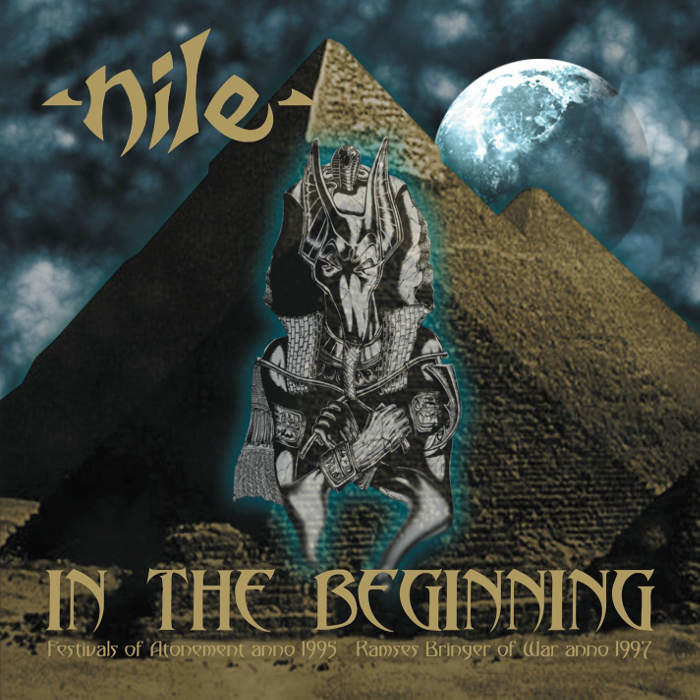



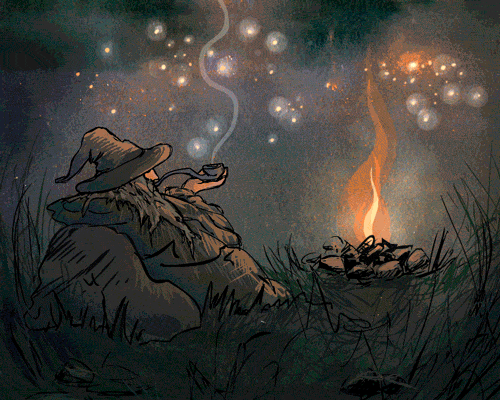

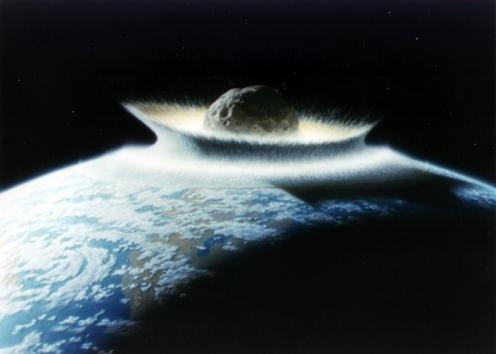
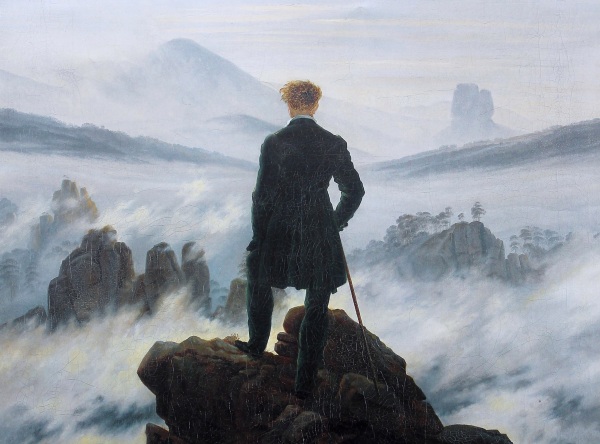
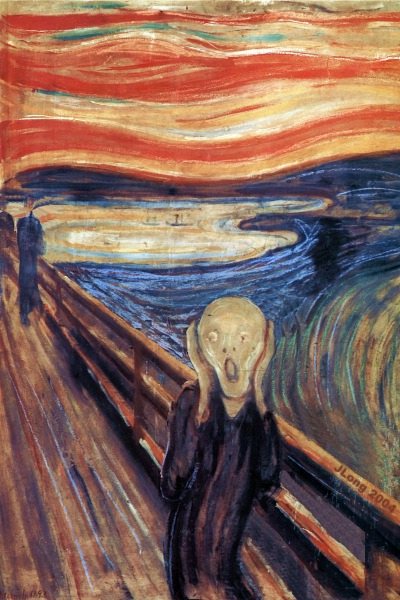

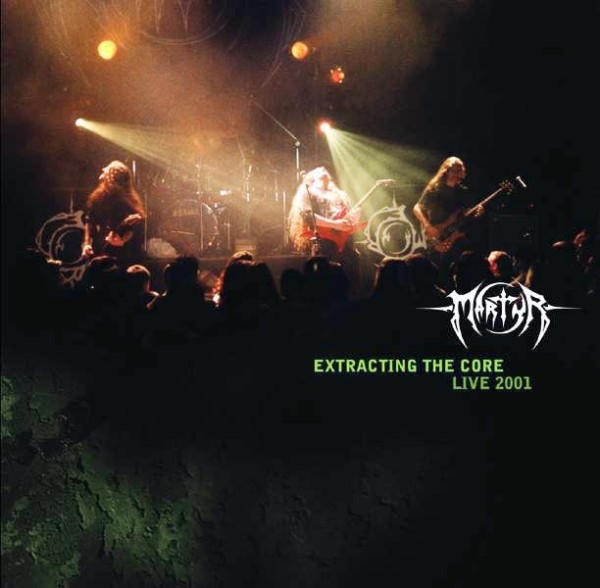

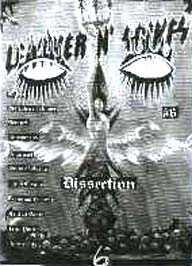 I laughed when I saw the editor of Leather N’ Spikes magazine described somewhere as “metal hottie Nuklear Cath.” She’s a lot more than that: she runs one of the magazines which meets metal ideal in spirit and aesthetic, which idolizes the stuff with potential and doesn’t notice the bands that normal people seem to like. Those people who can’t step outside of their own heads and into the world of metal which supercedes the norm will hate it, but to the rest of us it’s a form of journalism unique to metal itself. After a busy day of piling up the corpses of her victims near a temporarily memorial area, Nuklear Cath was good enough to grant us an interview on the eve of the launch of the new Leather’n’Spikes website.
I laughed when I saw the editor of Leather N’ Spikes magazine described somewhere as “metal hottie Nuklear Cath.” She’s a lot more than that: she runs one of the magazines which meets metal ideal in spirit and aesthetic, which idolizes the stuff with potential and doesn’t notice the bands that normal people seem to like. Those people who can’t step outside of their own heads and into the world of metal which supercedes the norm will hate it, but to the rest of us it’s a form of journalism unique to metal itself. After a busy day of piling up the corpses of her victims near a temporarily memorial area, Nuklear Cath was good enough to grant us an interview on the eve of the launch of the new Leather’n’Spikes website. What does it mean for you, to be a writer? Do you consider yourself in this position?
What does it mean for you, to be a writer? Do you consider yourself in this position? Do you do any graphical or layout design besides what’s on the book? if so, which do you think will be more important as a stressed aspect of any new design, during the next two decades: perspective, color contrast, impact fonts or religious icons?
Do you do any graphical or layout design besides what’s on the book? if so, which do you think will be more important as a stressed aspect of any new design, during the next two decades: perspective, color contrast, impact fonts or religious icons? Who are your favorite postmodern writers?
Who are your favorite postmodern writers? Let me hijack this question and answer it in a different order. First, drugs are omnipresent in American society because any highly industrialized nation doesn’t utilize its population efficiently. Back in the old days, people spent all of their cycles hunting game, planting gardens, making quilts, raising babies, building log cabins, and tending fires because they had to, to survive. There wasn’t much leisure time, and it was used by religion. There was little free will – you either hauled water from the well a mile away, or you died. Humanity doesn’t always have things easy now, but it’s not hard to get an easy job at McDonalds or a factory, pay your rent, never break a sweat, and have 128 of your 168 hours a week free to your own devices.
Let me hijack this question and answer it in a different order. First, drugs are omnipresent in American society because any highly industrialized nation doesn’t utilize its population efficiently. Back in the old days, people spent all of their cycles hunting game, planting gardens, making quilts, raising babies, building log cabins, and tending fires because they had to, to survive. There wasn’t much leisure time, and it was used by religion. There was little free will – you either hauled water from the well a mile away, or you died. Humanity doesn’t always have things easy now, but it’s not hard to get an easy job at McDonalds or a factory, pay your rent, never break a sweat, and have 128 of your 168 hours a week free to your own devices. This seems to me why ancient religions and cultures recommended a studied celibacy for men. It seems that one workaround to this would be a more anti-social culture, where fewer people attempt the emotional interdependency that works well to glue society together like plywood, in which a relationship offered briefer, more passionate encounters with a significant other living in a close but separate location.
This seems to me why ancient religions and cultures recommended a studied celibacy for men. It seems that one workaround to this would be a more anti-social culture, where fewer people attempt the emotional interdependency that works well to glue society together like plywood, in which a relationship offered briefer, more passionate encounters with a significant other living in a close but separate location. Speaking of Waco, what is the function of government?
Speaking of Waco, what is the function of government? Metallica – Kill Em All: Although the band later became butt-pirates, this album was practically an anthem to millions of metalheads, and acted like a gateway drug for virtually everyone that went out and started a band or got involved with heavier metal.
Metallica – Kill Em All: Although the band later became butt-pirates, this album was practically an anthem to millions of metalheads, and acted like a gateway drug for virtually everyone that went out and started a band or got involved with heavier metal.
 Queensryche – Operation : Mindcrime: This obscure group of Seattle prog-rockers put their mark on the world with what’s possibly the best concept album ever.
Queensryche – Operation : Mindcrime: This obscure group of Seattle prog-rockers put their mark on the world with what’s possibly the best concept album ever. Entombed – Left Hand Path: This immaculate work filled with unprecedented heaviness but yet an incredible depth and complexity was the high water mark for the early 1990s Swedish Death Metal genre, and in my opinion, was never topped.
Entombed – Left Hand Path: This immaculate work filled with unprecedented heaviness but yet an incredible depth and complexity was the high water mark for the early 1990s Swedish Death Metal genre, and in my opinion, was never topped. Slayer – Reign in Blood: Although their earlier work was just as impressive, this album defined how fast metal would be played for years, and also got Slayer kicked off of Sony.
Slayer – Reign in Blood: Although their earlier work was just as impressive, this album defined how fast metal would be played for years, and also got Slayer kicked off of Sony. Do you think civilization often hides ugly truths behind social behavior?
Do you think civilization often hides ugly truths behind social behavior?


